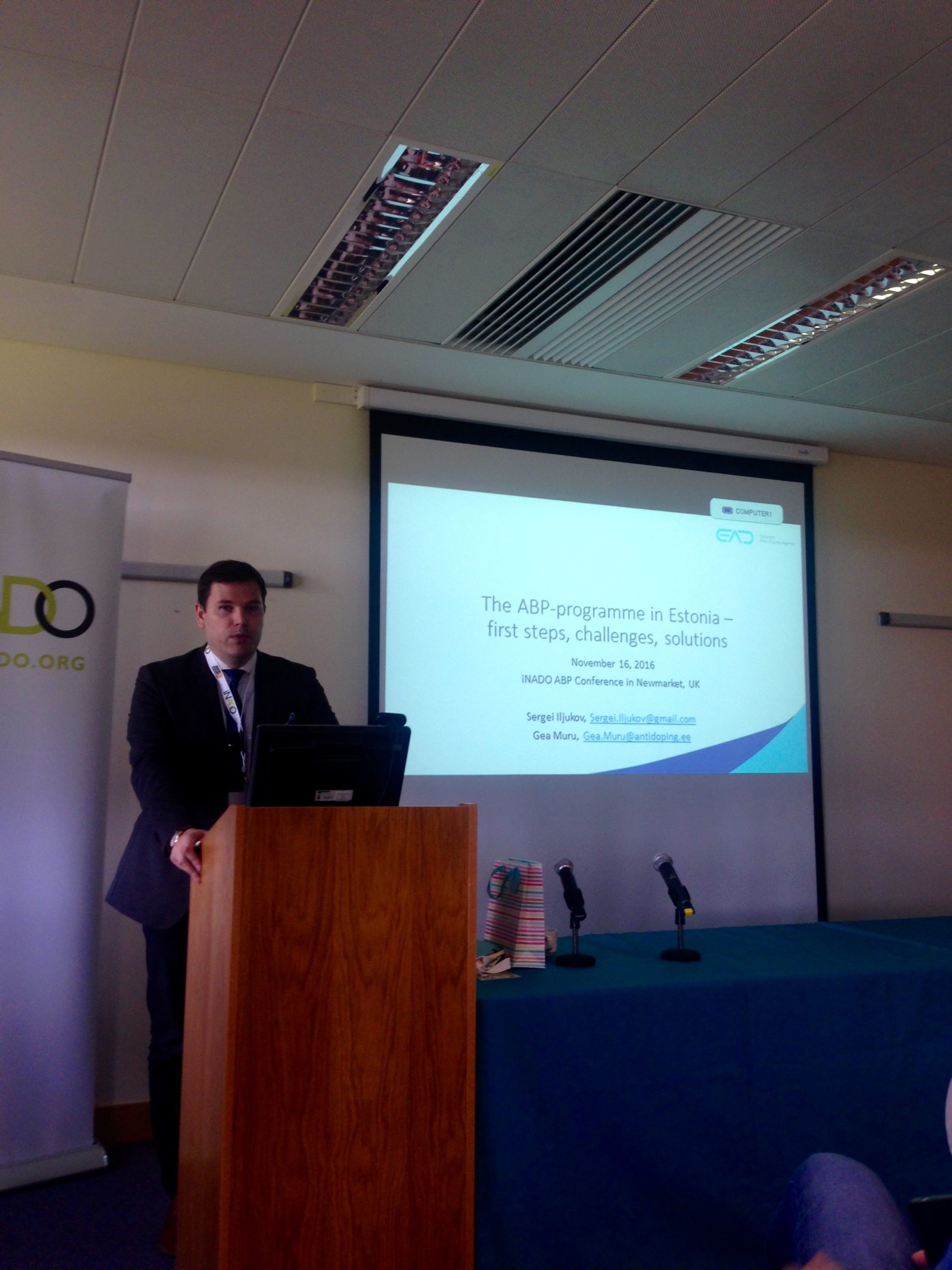
Eesti Antidopingut esindas konverentsil testijuht Gea Muru ning meditsiinivaldkonna ekspert Sergei Iljukov. EAD-l oli võimalus teha omalt poolt ettekanne, kuidas väheste ressurssidega väikses riigis võib sportlase bioloogilise passi programmiga alustada.
Allpool on toodud konverentsi juhataja peamised tähelepanekud ja järeldused (inglise keeles).
Matt Fedoruk from USADA who was the moderator of the conference identified the following points as the most important outcomes of the conference:
– Hematological and steroidal ABP programs have become a robust forensic and legal tool to assert ADRVs when implemented effectively
– Execution of an effective ABP program is dependent on specific NADO resources, with most important aspects being process, collaboration and cooperation
– WADA is continually striving to fine-tune and strengthen the ABP program with input from stakeholders – revised ISTI, BSS Score, TDSSA, Endocrine module, Biomarker discovery
– ABP is one tool and requires integration of analytical and non-analytical information to drive intelligence testing and maximizing both detection and deterrence
– Many NADOs, APMUs and IFs have experience and are willing to mentor and help others with capacity building
– WADA-accredited laboratories and lab-associated APMUs provide blood and steroid analysis reports in accordance with WADA TDRMR and TDEAAS, respectively.
– Specific workflows are essential to effectively manage ABP results: APMU->Expert Panel->Evaluation (Normal, Suspicious, Likely Doping, Pathology) ->Results Management
– Legal robustness of the hematological ABP has been upheld by CAS, even in the presence of confounding factors, with length of ineligibility based on intentional violations (4 years or greater)
Konverentsil osalemist toetas osaliselt Eesti Kultuurkapital.